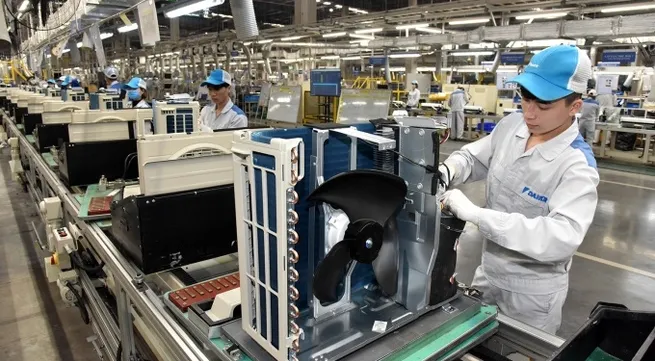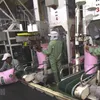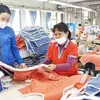Hung Yen Province seeks to attract investment in industry

Over the past five years, Hung Yen Province has made large investments in order to develop an efficient transport system, opening many important roads to connect its industrial zones and clusters with national highways, expressways, the capital city’s ring roads, major cities, sea ports and airports in the northern region.
These include a road linking the Hanoi-Hai Phong Expressway with the Cau Gie-Ninh Binh Expressway, Hung Ha Bridge, La Tien Bridge, provincial road 200, the Red River dyke road and the Luoc River dyke road.
The province has also invested in developing its power grid under its plan for 2016-2025, with a view to 2035, in order to meet its demand for socio-economic development. From 2016 to 2019, EVN Hung Yen spent more than 1.1 trillion (US$47.4 million) on the restoration and construction of 533 kilometres of medium-voltage lines and 659 kilometres of low-voltage lines, as well as constructing 984 substations with a total capacity of 1,624,710 kVA.
Key projects include the 110kV Minh Hai, Van Giang 1 and Van Giang 2 Substations and their transmission lines. The 110kV Kim Dong - Pho Cao line was also upgraded to improve the reliability of the province’s power supply for socio-economic development.
Over the years, the province has revised and updated its industrial zone development plan such that the zones are reasonably distributed in order to tap into local advantages for industrial development while ensuring agreement with the land use plan and the province’s industrial development needs.
Hung Yen is currently home to 10 industrial parks with a total area of 2,481 hectares, of which five have been put into service, namely Pho Noi A, Pho Noi Garment, Thanh Long II, Minh Duc and Yen My II. Three others, namely Yen My, Minh Quang and Kim Dong, are in the process of site clearance and infrastructure development, while planning and environmental protection procedures are under way for the Tan Dan and Ly Thuong Kiet Industrial Parks. The total area occupied by secondary investors in active industrial parks is around 1,768 hectares.
At the same time, Hung Yen Province is constructing smaller industrial clusters, which have attracted over 535 projects so far. The clusters of Minh Khai I, Minh Khai II, Chi Dao, Dai Dong, Tan Dan and Luong Bang-Hiep Cuong all have an occupancy rate of 100%. Two others have occupancy rates of 50-80% and six have an occupancy rate of 30%. By the end of 2020, the province expects to establish and put into operation 17 industrial clusters.
The attention to infrastructure planning and development, as well as strong efforts in administrative reform, has created a favourable investment climate in Hung Yen Province. The province is currently hosting 2,000 domestic and foreign projects with a total capital of over US$11 billion, of which many have large capital and advanced technology capable of participating in the production and distribution networks of renowned domestic and foreign firms. Hung Yen has maintained a high index in industrial production during the 2016-2020 period, averaging at 10.21%, and recorded export turnover of US$4.7 billion.
Hung Yen Vice Chairman Dang Ngoc Quynh stated that in order to further improve its investment environment, the province is implementing a wide range of measures, including stepping up administrative procedure reform, finalising the procedures for some industrial parks as part of the 3,000-hectare Ly Thuong Kiet Urban and Industrial Complex.
The province is also seeking to expand the industrial parks of Thang Long II and Yen My and other industrial clusters so as to welcome domestic and foreign investment projects, especially from enterprises that employ advanced technology, create high added value, pay attention to environmental protection, create high-paying jobs and make large contributions to the budget.





